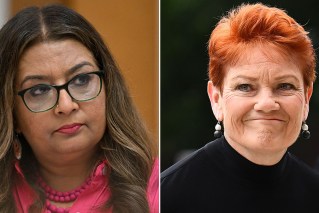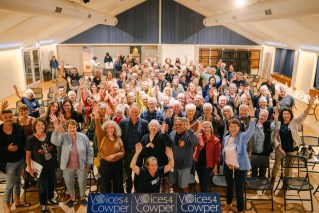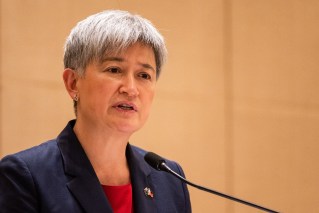Moderate Liberals contemplate future after federal election wipeout

A long night of the soul or worse looms for Liberal moderates after the party’s electoral support all but disappeared prompting warnings against a lurch to the right under its next leader.
Saturday’s poll produced one of the most surprising election results since the Second World War, with voters turning their anger especially on inner-city Liberals.
Now a leading member of the Liberal right wing, Queensland MP Peter Dutton, will make his second bid for the party’s leadership.
Angus Taylor, also aligned with party conservatives, did not respond to a text message about the leadership.
Some are yet to concede but Liberals leaving the Parliament include moderate-aligned Tim Wilson, Dave Sharma, Trent Zimmerman, Jason Falinski, Katie Allen, Ken Wyatt and Fiona Martin.
Josh Frydenberg, who lost Kooyong, is not of the moderate faction but was considered the party’s most saleable leadership candidate outside Mr Dutton’s national right.
But election post-mortems from outgoing and remaining party moderates are warning against the further embrace of conservative policies similar to those that repelled inner-city voters.
Outgoing Finance Minister Simon Birmingham said on Sunday the party had lost its way in the cities on two scores: The rejection of former prime minister Malcolm Turnbull’s climate policy and a long and bruising debate over same-sex marriage.
A ‘contagion’
Mr Birmingham had earlier criticised the preselection of Katherine Deves, the candidate for Warringah who made a string of anti-trans remarks but received the backing of outgoing Prime Minister Scott Morrison, for setting off a “contagion” among Sydney voters.
“We need to make sure we win back many more of those professionals and especially Australian women,” Senator Birmingham said.
Tim Wilson, the former Goldstein MP, also seemed to take a shot at Mr Morrison’s flirtations with the culture wars when conceding defeat on Sunday: “Too much of the conversation about liberalism has been focused on other agendas or fringe agendas.”
Only one of the group of MPs who crossed the floor to stop Mr Morrison from passing religious discrimination legislation they said would have allowed discrimination against transgender students remains in Parliament: Bridget Archer.
She defied a national swing to hold the marginal seat of Bass in Tasmania and says she wants to see the party go in a less ideological direction.
Marija Taflaga, who heads the ANU’s Centre for the Study of Australian Politics, said changes to the Liberals’ electoral base and the rising influence of the Nationals if the Coalition stays together show the pressure is only heading in one way.
“The centre of gravity for the Liberal Party itself has moved; Queensland now, by far, provides the most MPs,” Dr Taflaga said.
Coalition tensions
Early figures suggest that Nationals MPs may account for up to one-third of the Coalition’s votes if the partnership is renewed in the next Parliament.
“The Nationals should get more shadow ministries and that will have an effect on policy,” she said.
Senator Birmingham said if the Coalition agreement were renewed the Nationals would need to make allowances for policies that did not alienate urban voters further.
Outspoken climate scepticism from Nationals, such as Matt Canavan, was the source of considerable tension during the campaign.
Dr Taflaga says the Liberal Party fuses two schools of thought – classical liberalism and conservatism – that were previously bitter enemies before being welded together to compete with Labor.
Now that imbalance exists within the party room but also between the Liberal parliamentary wing branch and moderate-dominated state branches such as New South Wales that preselect MPs, struggle becomes more likely.
“If you look at broad church conservative-liberal parties around the world that contain both groups, one faction usually dominates and crushes the other,” she said.
A map redrawn
The fall of the Liberals in Western Australia leaves the party with only one electorate, Moore, left in Perth still hanging on a close count.
In Melbourne, too, the Liberals have been evicted from heartland seats such as Kooyong, Higgins and Goldstein, but also in the marginal seat of Chisholm and, it seems increasingly likely, in conservative MP Michael Sukkar’s seat of Deakin.
Only the former Education Minister Alan Tudge is guaranteed to represent the party brand in greater metropolitan Melbourne as the fight over Menzies is coming down to the wire.
In Sydney, independents now dominate what was once Liberal heartland in harbourside Wentworth and in Mackellar, North Sydney and, since the 2019 election, in former Prime Minister Tony Abbott’s seat of Warringah.
The party’s relative strength in Queensland has been tested by the loss of the urban seats of Ryan and Brisbane. In Adelaide the Liberals forfeited Boothby for the first time in decades while Sturt, never considered a possible gain for the party, is coming down to a close count.







